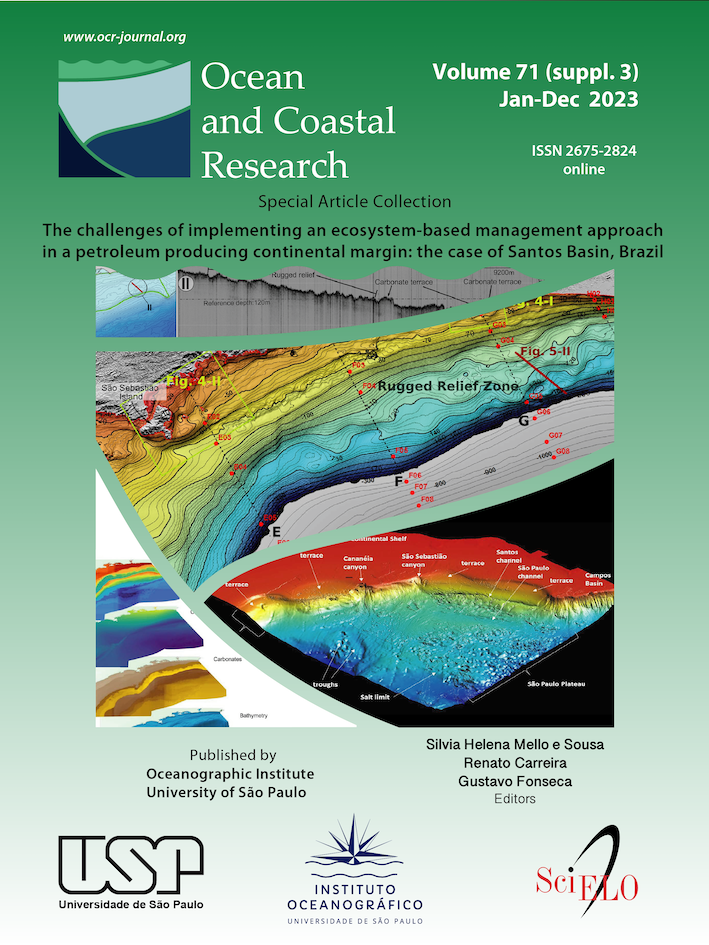Vol. 71 No. Suppl. 3 (2023): Ocean and Coastal Research: Subsidies for ecosystem-based management in an offshore oil and gas exploration area, Santos Basin, Brazil (Special Article Collection)

The Santos Basin, located in the South-Western Atlantic, has a total area of 350,000 km2 and extends down to water depths around 3,000 m. The Basin is one of the largest pre-salt oil reservoirs in the world, with an estimated recoverable oil reserve of 21.6 billion oil barrels. This special issue explores recent findings from an ongoing interdisciplinary project named “Chemical, Biological and Geological Characterization of the Benthic System of the Santos Basin”, which is part of a regional environmental characterization program designed by the Brazilian State oil company (Petrobras). This project started in 2018 in a partnership involving 10 Brazilian universities and the company’s research center (CENPES). It was motivated by the lack of geological, oceanographic, chemical, and biological scientific knowledge, which severely compromised initiatives of environmental planning management practices aimed at conciliating the exploration and production activities in the basin, and preservation of biodiversity and environmental health on a regional scale. During this project physical, chemical, sedimentological and biological data of the benthic system are acquired to enhance the understanding of the functioning of the benthic system, its spatial variability, and the coupling with pelagic processes. This broad context sets the considerable challenge and opportunity for marine science, industry, and management to cooperate and together achieve sustainable economic growth through data-driven management.
Ecosystem-based management implies the need to monitor an increased range of environmental conditions and ecological components of the marine environment (Kuspschus et al. 2016). The goal is to describe and monitor the processes of change. Such an approach requires a clear understanding of the inter- and intra-relationships among the several biotic and abiotic components of the system and how each of these components may respond to anthropogenic changes. When successfully applied, indicators of the ecosystem quality are selected and constantly monitored to minimize environmental risks, allows the constant incorporation of data, and provide means to test hypotheses on how biodiversity, biogeochemical processes, and anthropogenic activities interact.
The objectives of this issue are to promote the integration of the main oceanographic processes in Santos Basin from distinct perspectives of physical, benthic, and pelagic and how this information can be integrated to guide management decisions in face of increasing anthropogenic activities.
This is the Volume 71, Suppl. 3 (2023) of the Ocean and Coastal Research.



